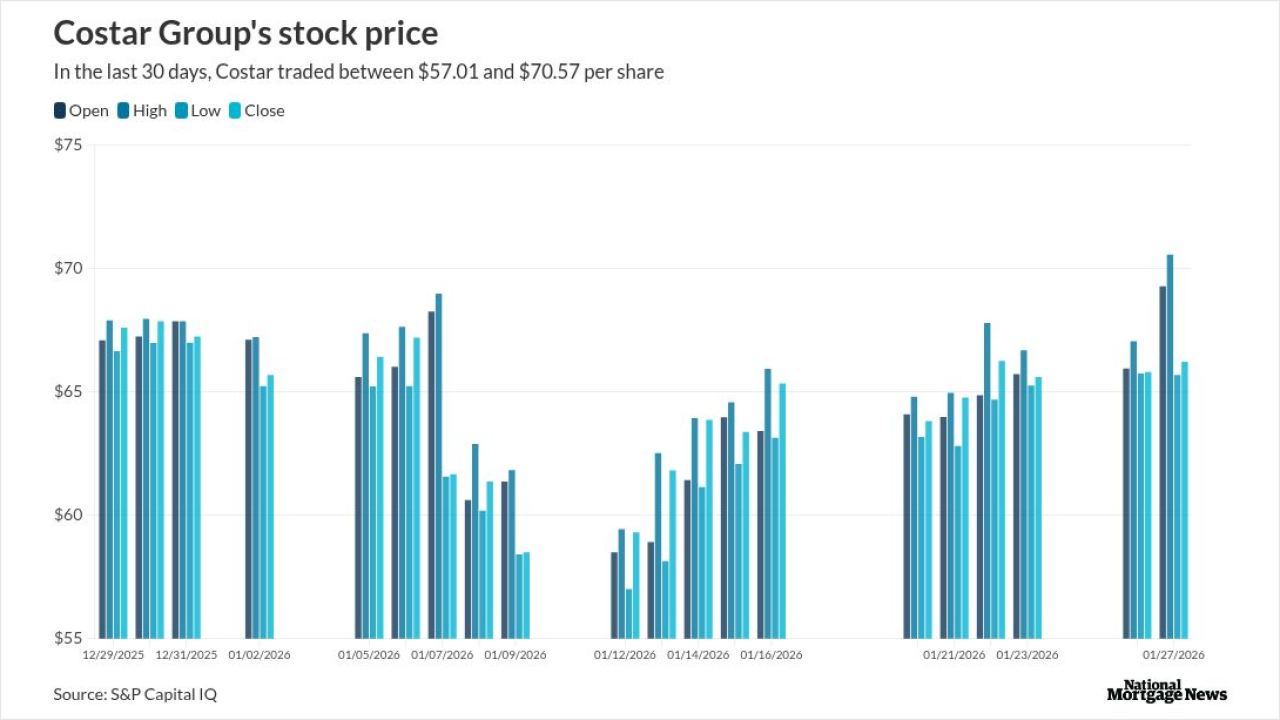As regulators devote more attention to the issue of appraisal bias, valuation professionals are increasingly subject to new training requirements that lenders should monitor, especially given the warning from housing officials that lenders are accountable, too.
In
In line with those laws and
Minnesota is requiring all appraisers who obtained their licenses prior to Sept. 1 to undergo this type of professional education before Aug. 31, 2023. State appraisers who get a license after that date must do the training within two years.
Similarly, New York has passed a law that will take effect starting Jan. 1, 2022 requiring every licensed or certified appraiser to complete a course in fair housing and lending.
In addition, California recently included requirements in
Also, appraisers nationwide are required to take a seven-hour continuing education course once every two years in the professional standards of practice. The newest version of the Appraisal Foundation’s course fulfilling this requirement, which was released in October, includes a new two-hour segment related to bias and discrimination issues. Part of those two hours includes a case study related to the topic of bias, which was drafted based on a situation appraisers may encounter in their daily practice.

The training aims to rectify inequities in the appraisal process, since valuations essential to mortgage approvals come in lower more frequently for Latino and Black households than white ones, according to
“That disparity that exists doesn’t help anybody. It means there are a lot of problems that need to be fixed and it’s not just appraisals. There are a lot of players in this game, whether it be appraisers, mortgage bankers, or banks that need to come to the table to find solutions,” said Rodman Schley, national president of the Appraisal Institute, noting that the organization is developing coursework that will meet state requirements.
The type of appraiser training that fulfills bias-related education requirements at the state level is likely to differ by jurisdiction.
“Most states are still in the process of defining valuation bias and fair housing education requirements. We already see varying degrees of instruction hours and content by the few states that have enacted new requirements,” said Shawn Telford, chief appraiser at CoreLogic, in an email. CoreLogic offers real estate valuation bias training through the Columbia Institute.
New York has two different requirements that vary depending on the appraiser’s licensing status and previous training: either a seven-hour introduction to fair housing and fair lending or a four-hour update on those topics, according to Telford. The state also has a specific content outline and timeline. California requires two hours of education on the elimination of bias and one hour of cultural competency training. Minnesota is less specific, requiring continuing education on valuation bias for all appraisers.
Licensed appraisers should be able to prove compliance with state bias training requirements to lenders by producing a certificate from an authorized provider that can authenticate it, said Telford. In some cases, the provider sends certification directly to the state, which also may be able to verify it.
Bias awareness training could be “a great first step” in addressing broader issues with valuations like the need for equitable lending and appraiser shortages, said Tai Christensen, a diversity, equity and inclusion officer at CBC Mortgage Agency.
“There are going to be people who say they don’t have an unconscious bias, but the truth is we all do,” said Christensen, whose company is an administrator of the down payment assistance Chenoa fund. Valuations are often a factor in whether or not the diverse group of borrowers her company serves gets mortgages, so bias training is important both for appraisers and the mortgage and real estate industries at large, she said.
“Appraisal bias goes to the heart of the racial wealth gap in my personal opinion,” said Christensen.




